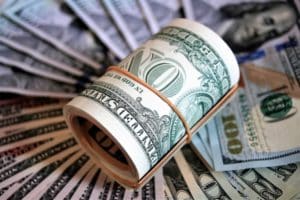Amid the de-dollarization trend sweeping the global financial landscape, the CEO of JPMorgan Chase, Jamie Dimon, has emerged as one of the leading advocates of preserving the reserve currency status of the US dollar.
Dimon has recently emphasized the importance of the United States as the fundamental base of the global economy and warned against questioning the longstanding dominance of the US dollar.
In this article we will examine Dimon’s perspective and the implications of questioning reserve currency status, considering the current economic landscape and the potential consequences of such a move.
The importance of the reserve currency status of the US dollar and the position of JPMorgan’s CEO
For decades, the US dollar has played a crucial role as the world’s primary reserve currency.
This status is the result of several factors, including the stability of the US economy, the liquidity of dollar-denominated assets, and the depth and liquidity of US financial markets.
Reserve currency status provides the United States with significant benefits, such as the ability to borrow at lower interest rates, greater global demand for financial assets, and a privileged position in international trade and finance.
Jamie Dimon, as CEO of one of the world’s largest financial institutions, recognizes the immense advantages that reserve currency status offers the United States.
He believes that challenging the dominance of the dollar could have far-reaching consequences for the global economy.
Dimon argues that the United States is the foundation of the global economic system and its currency, the dollar, is the key reserve currency.
Therefore, it is in the interest of all nations to maintain stability by not questioning this arrangement.
Potential implications of questioning reserve currency status
Although the idea of diversifying away from the US dollar may seem appealing to some nations seeking to reduce their dependence on a single currency, there are significant challenges and potential risks associated with questioning the reserve currency status quo.
Global financial instability: The transition away from the US dollar could lead to increased volatility and uncertainty in global financial markets.
Dollar dominance has provided stability and acted as a common medium of exchange for international transactions.
Moving away from the dollar could disrupt these established systems and introduce new risks.
Loss of economic benefits: Reserve currency status has allowed the United States to enjoy favorable borrowing terms and lower interest rates.
If the dollar’s dominant position diminished, the US government could pay more for loans, which could affect the US economy.
In addition, other countries could lose access to deep and liquid US financial markets, limiting their ability to raise capital.
Currency wars: challenging the reserve currency status of the US dollar could trigger a race among nations to establish their own currencies as alternatives.
This could lead to an intensification of currency wars as countries seek to gain a competitive advantage through devaluations and currency manipulations. Such conflicts would have negative effects on international trade and economic cooperation.
Uncertain transition process: The transition to a new global reserve currency would be complex and challenging.
The lack of a clear replacement for the US dollar poses logistical obstacles and creates uncertainty about the stability and viability of alternative currencies.
This could further disrupt global financial markets and erode investor confidence.
Conclusions
As CEO of JPMorgan Chase, Jamie Dimon’s warning not to question the reserve currency status of the US dollar has its own relevance.
While the ongoing de-dollarization trend reflects the desire for a more diversified and multipolar global financial system, the potential risks and consequences of questioning the status quo should not be taken lightly.
The dominance of the US dollar has been a cornerstone of the global economy.


